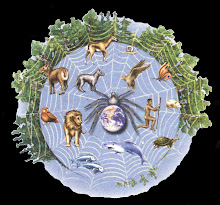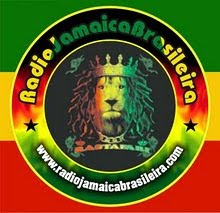DVD Review: Reggae In Babylon - Reggae In London 1978
The late 1970's and the early 1980's were times of civil unrest in England that was marked by running battles between the police and minority groups. Young south-east Asians and blacks in particular came under fire from the police for refusing to take abuse from either them or neo-nazi groups like the National Front. It was one of the peculiarities of British policing at the time that when Asian or black youth fought back against skin-heads the police always managed to show up to quell the "rioting" but were never to be found when the skin heads were on the assault.
In 1980 tensions between police and the black community boiled over amidst accusations of police brutality and racism and the resulting riots left behind damage that was still visible a month after. I was in London just after the riots and there were still store fronts boarded over with plywood and the underground press was full of stories of young black men being picked up and worked over for no reason. It seemed that the police were especially targeting the most visible among the black minority - Rastafarians - who were easily distinguished by either their dreadlocks or the colourful knitted caps they wore to contain their "dreads"
The Rastafarian religion had come over to England with Jamaican immigrates after WWll. It was started as a black liberation movement in the slums of Jamaica based on the writings of black nationalist Marcus Garvey. The name Rastafari comes from the name Emperor Haile Selassie I was known by before ascending the throne of Ethiopia, Ras Tafari Makonnen. In his writings Garvey had predicted the coming of a black king in Africa who would lead black people to freedom, and when Selassie was crowned in 1930 he was believed to be that man. The self styled Lion of Judah not only gave his name to the religion, he was taken as a god on earth by the more devout amongst his followers.
For the Rastafarian, the white man's world, Babylon, is a prison and he will only be truly free when he is living in the promised land of Africa - specifically Ethiopia, In his documentary movie made in 1978, Reggae In Babylon, German film maker Wolfgang Buld's interviews with young British reggae musicians shows that while not all of them were strict adherents to the tenets of the religion, they did look upon it as significant for the role it played in establishing a black identity for young British of African descent. One of the members of the band Steel Pulse in their interview describes himself as not necessarily being an adherent of the religion, but he could appreciate it for the sense of history and identity it gave him.
Reggae In Babylon has just been reissued by MVD Entertainment and is an amazing historical document. In it the director went around and interviewed various key figures in the British reggae scene in 1978 when it was just beginning to take off. He not only talks to bands like Steel Pulse, he took footage of them playing both live and in the studio. The majority of what he talks to the various individuals about is the history of reggae, both in and outside of England, and its inter-relation with Rastafarianism. While there are no direct references to any of the troubles that are being experienced by the black community at the time, one of the interviews takes place in front of a bulletin board on which is hung a sign denouncing the National Front.
STEEL PULSE
While Steel Pulse are probably the name most of us are going to be familiar with of those interviewed for the film, the members of Aswad, are more of a Rastafarian band in terms of their religious convictions, and look more like what we have come to expect a reggae band to look like. For in these young days of British reggae, folks like the members of Steel Pulse have yet to grow their hair in dreads and are dressed in their street clothes when performing. The music however is pure reggae with all of the characteristics of the sound firmly established.
Lyrically Steel Pulse music reflected the tenor of the times more than any of the other musicians interviewed. In fact there were a couple of songs sung by Jimmy Lindsay, "Ain't No Sunshine" for instance, that weren't much different from most R&B or soul song in terms of content. The only real difference being the lyrics were sung with a slight Jamaican accent. Interestingly enough, as most of the musicians were born in England, and some are even second generation English, very few of them speak with the thick accent we've come to associate with reggae musicians. The guys in Steel Pulse all sound pretty much like anybody their age born in urban England.
ASWAD
As for the other major characteristic of Rastafarianism, the use of marijuana as a sacrament, while there were some shots of people smoking while listening to Aswad playing, there wasn't much made or said about it by. In fact it receives only the briefest of mentions by one person when asked to define Rastafrianism. It doesn't appear to have been as important to these people as a whole as it might have been for reggae players elsewhere.
One of the nice surprises about Reggae In Babylon is the high quality of both the picture and the sound, especially considering it was filmed thirty years ago and the sound was originally mono. The images are sharp and clear, and the sound was a lot cleaner than many a disc shot these days. Whoever was responsible for re-mastering the tapes has done a magnificent job.
1978 in England was a turbulent time especially in the inner cities where punk and reggae were taking root among the young people and providing them a focal point for their frustration with the system. Reggae In Babylon not only gives us insights into some of the social conditions affecting the black community of the time, it shows the role reggae and Rastafarian religion played in giving it a sense of purpose and identity. While there was no Rastafarian church or leadership the people could rally around or follow, it still acted as a unifying element. Unlike previous generations they weren't going to be content with the role of docile servant and were prepared to stand up for their rights and reggae was the soundtrack for that fight. (Fonte: http://richardrbmarcus.com/)
Faixas:
Jimmy Lindsay - Ain't No Sunshine
Aswad - It's Not Our Wish
Matumbi - Rock
Aswad Feat Alton Ellis - Diverse Doctrine
Steel Pulse - Ku Klux Klan
Steel Pulse - Prodigal Son
Jimmy Lindsay - Easy
Link para download:
http://www.mediafire.com/file/6a947ocr664pp11/Reggae_In_A_Babylon_%281978%29_DVD.zip



















.jpg)


























.jpg)




Nenhum comentário:
Postar um comentário